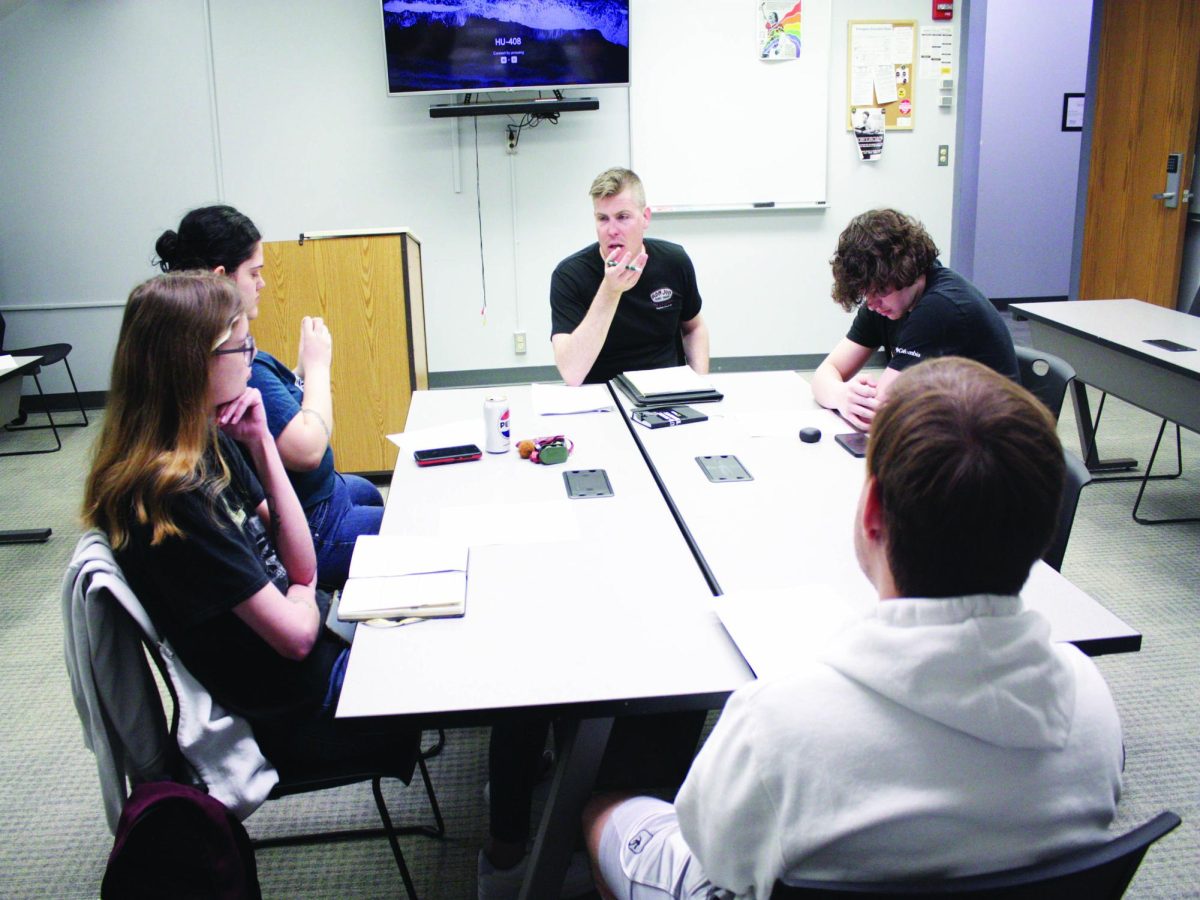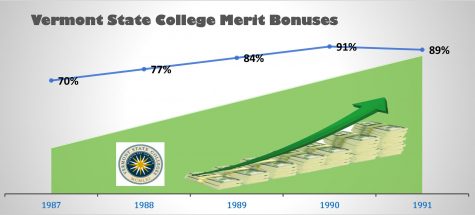Vermont court records show Carpenter, Bunting sued for giving bonuses to nonunion employees
March 18, 2015
Stan Carpenter and Charles Bunting, the two men who will choose the next Wayne State College President, were involved in a lawsuit in 1991 involving giving bonuses to non-labor union college employees.
In October 1991, the Vermont State Colleges Faculty Federation alleged that Vermont State Colleges (VSC) discriminately gave monetary bonuses to employees who were not represented by the Federation between the years of 1987 and 1991, essentially rewarding those who decided to not be protected by the labor union.
Facts found in the case showed that in 1987, 70 percent of merit bonus money was given to “administrative/exempt” or unrepresented employees. In 1988, 77 percent of merit bonuses were awarded to administrative/exempt employees. In 1989, those employees were awarded 84 percent, in 1990, 91 percent and in 1991, 89 per cent.
It was also noted that only one faculty member represented by the Federation was awarded a merit bonus in those five years.
The Federation alleged that this was an unfair labor practice because it discouraged employees from joining an employee organization. VSC petitioned the court to throw out the case because it wasn’t brought in a timely manner.
According to Vermont’s State Employee Labor Relations Act, “No complaint shall issue based on any unfair labor practice occurring more than six months prior to the filing of the charge with the Board.”
In January 1990, while gathering information for mediation during negotiations for the 1990-1992 contracts, Federation president Timothy Strum petitioned then-Chancellor Charles Bunting for information about specific salary information for all employees for the years of 1987 through 1990. Merit bonus information was not requested at that time.
In April 1990, however, Strum wrote a letter to Stan Carpenter, who was the Director of Employee Relations for the college system, asking for information pertaining to the disbursement of merit bonuses. The Federation did not receive the requested information until September of that year.
In the statement of fact of the case, it was noted that “The Colleges (VSC) provided this information only after the Federation’s attorney threatened to bring litigation against the Colleges to require disclosure.”
The Vermont State Colleges argued that the State of Vermont should have dismissed the charges in their entirety because filing in October of 1991 was untimely, according to the six-month rule.
The courts, however, only partially agreed. They found that Federation filing was untimely for the years of 1987, 1988 and 1989. However, they did note that each year the Colleges awarded the majority of merit bonuses to administrative/exempt employees, a new grievance could be filed; therefore, they did not dismiss the grievances for 1990 and 1991.
Courts did, however, ultimately find in the favor of the Vermont State Colleges. The burden fell to the Federation to prove that VSC’s actions were motivated by anti-union sentiment and not motivated by legitimate financial reasons. The Federation was unable to do so.
The opinion stated “The Colleges have presented the legitimate and substantial business justification for this merit component of rewarding employee performance above and beyond the call of duty.”
This was not the first time the Federation brought grievances against VSC during Bunting and Carpenter’s time there. In 1986, the Federation filed two other labor grievances against the VSC.
In Nebraska in 2009, the NSCS was on the losing end of a court battle over salary negotiations with the State College Education Association. The Nebraska Supreme Court ruled in favor of the SCEA, the faculty union.
[The graph depicts the percentage of monies given in merit bonuses going to nonunion members over a period of five years at Vermont State Colleges.
When contracts were revisted in 1986, the Federation proposed the merit bonuses should be eliminated and those funds should be allocated to overall salary increases for facutly members.
VSC counter-proposed and allowed the bonuses to stay intact. Carpenter met with the VSC Council of Presidents to inform them of the newly renegotiated contract, which gave the Presidents the power to provide a facutlty member with a merit bonus in extrodinary situations.
While they had the ability to give such bonuses, there would be no money specifically budgeted toward such bonuses.]








